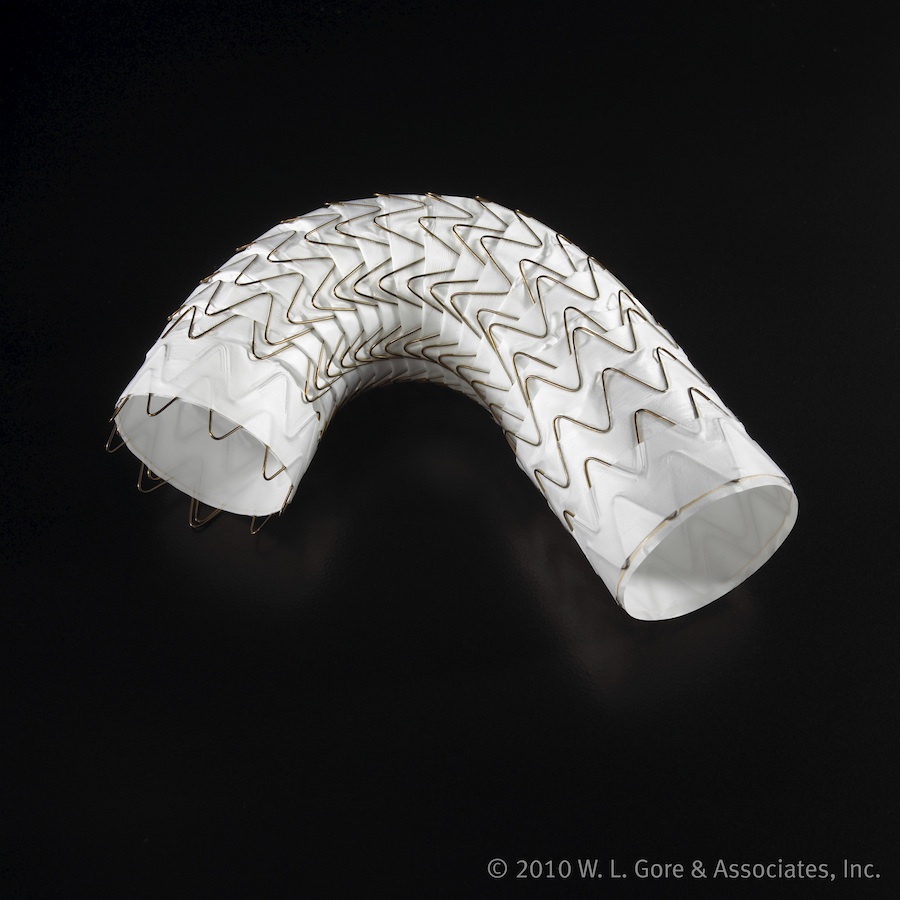
At a Glance
- A range of vascular conditions may now be treated using endovascular surgical approaches.
- UVA is participating in multiple studies to advance the latest endovascular techniques.
- UVA also offers the full range of advanced surgical options to treat vascular disease
In the last decade, endovascular surgery has transformed the treatment of vascular disease. There are now minimally invasive procedures for such conditions as aortic aneurysm and dissection, peripheral artery disease (PAD) and even varicose veins — and the impact of these advances only grows as medical device makers take on more ambitious challenges.
The advantages of endovascular approaches are significant, according to Gilbert Upchurch, MD, Division Chief of Vascular Surgery. “Upfront mortality is typically less than 1 percent,” he says. “There is no need for blood transfusions or general anesthesia. Recovery and hospital stays are also much shorter.”
Across the Range of Vascular Conditions
Thanks to its extensive clinical trials program, UVA Health System is often among the first in the country to investigate potential new endovascular treatments, providing additional options to patients who otherwise have few alternatives. As an example, Upchurch cites a number of trials available at UVA for vascular disease.
Aortic Dissection
“We were a top enroller of a study to determine the safety of an endovascular system which is used for complicated aortic dissection and aortic transections,” Upchurch notes. “We will also be one of a few sites nationwide offering an aortic arch endograft, the GORE® TAG® Thoracic Branch Endoprosthesis [IRB #10792], that may extend the area that can be treated endovascularly from the left subclavian and common carotid arteries all the way to the ascending aorta.” (The GORE TAG device is pictured above.)
Previously, patients with an aortic arch dissection underwent open surgery, requiring a median sternotomy and complete circulatory arrest. The new trial will replace this procedure with a small incision in the groin and stent grafts up to the blood vessels to the brain.
Carotid Artery Disease
UVA participated in the National Institutes of Health (NIH)-funded CREST 1 trial for carotid artery disease, the No. 1 cause of stroke in the United States. CREST 1 demonstrated that there was no statistically significant difference in combined stroke, myocardial infarction (MI) and death rates between stenting and endarterectomy, a surgical technique to remove fatty deposits from blood vessels. It now offers participation in CREST 2 (IRB #17821), a set of two parallel trials that compare the best medical therapy with stenting as well as with endarterectomy.
Peripheral Artery Disease
There is no consensus in the medical community on the optimal treatment for PAD patients with critical limb ischemia (CLI), dangerously restricted blood flow in the legs. The BEST CLI trial (IRB #17685), funded by the NIH, will help determine whether bypass graft surgery or a less invasive endovascular procedure is the best approach to restore circulation. UVA is now enrolling patients in this trial.
Backed by Surgical Options
Although endovascular devices create new options for care, they are not a panacea. This generation of endovascular devices may not be the best approach for all patients. There are also conditions for which there are, as yet, no endovascular options. In these cases, open surgery may be the preferred alternative. “While we are excited about the potential of endovascular devices, our goal is always to find the right approach for each patient,” Upchurch says.
For those patients requiring surgery, UVA also offers advanced treatment options and a highly skilled team of providers. It has built a dedicated hybrid operating room for vascular surgery, equipped with a Siemens’ Artis zeego® robotic C-arm imaging system, which quickly generates three-dimensional images. An important advantage of the hybrid operating room is that surgeons can take a multidimensional approach, combining open and endovascular surgery in a single procedure.
These advances have paid off in terms of patient outcomes, according to Upchurch. “Take aortic disease as an example,” he says. “We routinely perform surgery on patients with very high risk of mortality, paraplegia and kidney failure with much better than expected results. It’s very gratifying.”
Find out more about clinical trials UVA offers for vascular conditions.
Our physicians welcome in-person meetings to discuss our outcomes and the treatments we provide. To schedule a visit with a UVA provider, please contact our Physician Relations team.